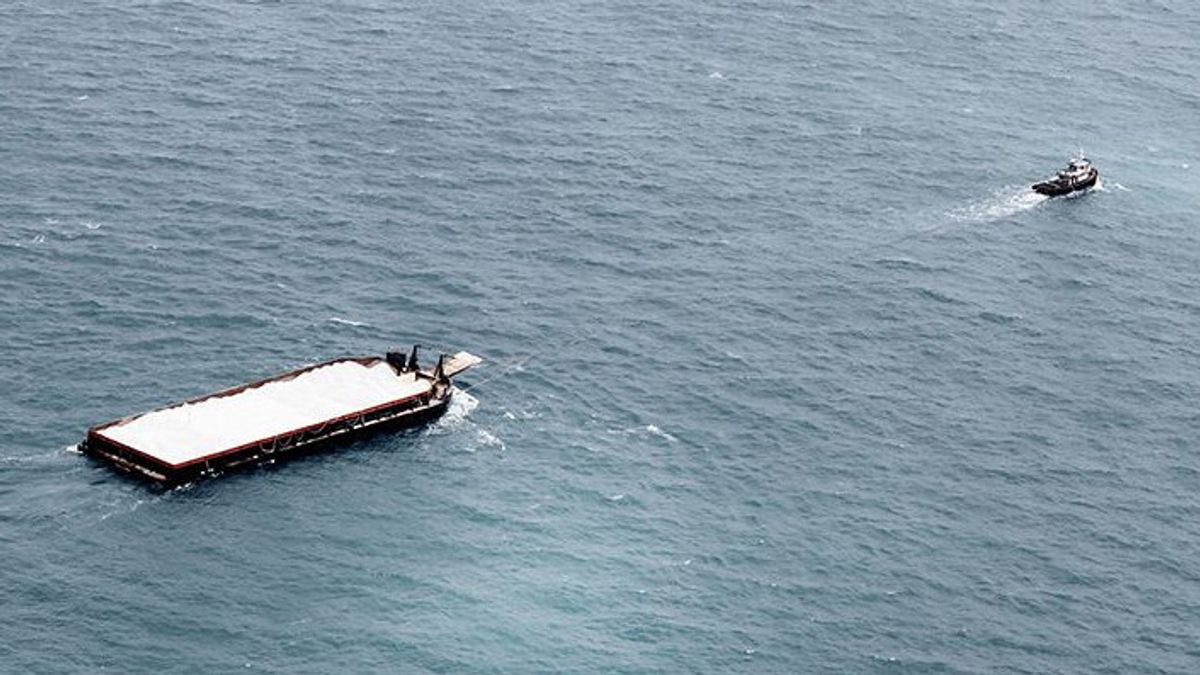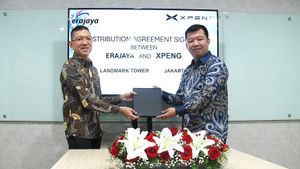JAKARTA - Mataram University Economic expert Ihsan Ro'is views sea sediment export activities abroad as detrimental to Indonesia for the long term.
"We export a lot of sand to Singapore. This is not profitable," he said in Mataram, West Nusa Tenggara, quoted from Antara, Wednesday, September 18.
Ihsan said that the sea sand that had been imported by Singapore from Indonesia was actually used to reclamation the country's beaches which made land wider.
Previously, Singapore's area was only 578 square kilometers and now that area has increased significantly to 25 percent to 719 square kilometers.
"Later, the coastline will be taken from the mainland, hit our coast again. The danger will also be (for sovereignty and territorial sea)," said Ihsan.
He further advised the government to make an in-depth study that explores the profit-loss aspects of the sea sediment export activities.
The deposit of non-tax state revenue or PNBP from entrepreneurs is five percent of the volume value of the exported sediment is not very profitable from the economic aspect for Indonesia.
The phenomenon of climate change, sea level rise, water ecosystem damage, and the sinking of small islands now haunt Indonesia as an archipelagic country.
The activity of dredging marine sediment, then exporting it abroad can have a broad impact on the environment in Indonesia.
The cost of environmental recovery that is damaged can be greater than the acquisition of PNBP from sea sediment exports.
Ihsan added that so far there has been no comprehensive study made by the government regarding the export activities of the marine sediment.
In fact, according to him, published detailed scientific studies are very important for the public to know in order to open up enlightening discussion spaces.
"Don't then make a rule by revoking the old rules without any good study," said Ihsan, who is the Dean of the Faculty of Economics and Business, Mataram University.
SEE ALSO:
Based on previous reports, the Indonesian government has banned sea sand exports for 20 years to prevent the expansion of the impact of environmental damage and the sinking of small islands.
Currently, the export rules for the latest sedimentation results are contained in Government Regulation Number 26 of 2023 concerning Management of sedimentation Results in the Sea as well as a follow-up to the proposal of the Ministry of Marine Affairs and Fisheries.
The Ministry of Trade stated that the export of sedimentation products in the sea in the form of sand can only be done as long as domestic needs have been met.
The English, Chinese, Japanese, Arabic, and French versions are automatically generated by the AI. So there may still be inaccuracies in translating, please always see Indonesian as our main language. (system supported by DigitalSiber.id)
















